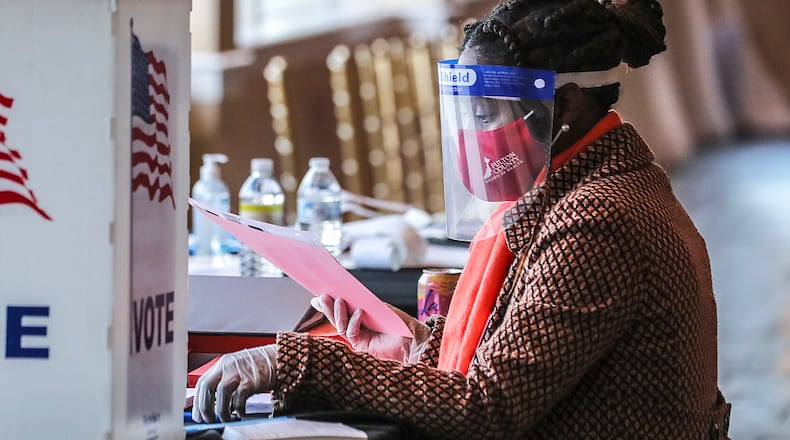When former President Donald Trump infamously asked Georgia Secretary of State Brad Raffensperger to “find” him 11,789 votes in 2020, the close race made it seem plausible that a handful of fraudulent votes could have tipped the balance. Much time, effort and money has been spent trying to find proof for the claim that some kind of fraud caused Trump’s loss in Georgia in the 2020 election.
While there are many remarkable elements to the voter fraud narrative, it amazes me that the most straightforward explanations for Trump’s loss are overlooked. And let’s be clear: more than three years post-election, there is no evidence that Georgia election officials certified the wrong winner in 2020.
And I should know. I’m the man the Trump campaign hired to find those votes.
Credit: Contributed
Credit: Contributed
I looked for dead voters and duplicate voters for every mail ballot cast in the state in 2020. I found about one dozen examples of this fraud, not thousands. The few claims I did find I was asked not to disclose by the Trump campaign. I was also asked to evaluate claims of fraud that others made and found them all false.
What are these straightforward explanations as to why Trump lost? Let’s start with an easily provable reason: In 2020, voters cast more than 62,000 votes for the Libertarian candidate, Jo Jorgensen. Jorgensen’s vote count was five times the margin of President Joe Biden’s victory in Georgia. Had Trump convinced 12,000 Libertarians to abandon their party and vote for him, he could have won.
Another astonishing and undeniable trend emerged when I compared the 2016 and 2020 election results.
In most of Georgia’s counties, whether blue or red, Trump’s share of the vote declined in 2020 relative to 2016. Most of Georgia’s red counties saw a drop in Trump’s vote share in 2020, although Trump cleaned up in the state’s smallest red counties.
Trump’s underperformance meant that he lost more than 100,000 votes in 2020 in Georgia’s red counties alone − a fact that argues strongly against the voter fraud narrative. Why would anyone commit voter fraud in a very conservative county if it harmed the conservative candidate?
Those 100,000 votes that Trump lost are easily explained. He told moderate Republicans to take a hike, and those lost votes confirm that these voters did as they were told. Trump would have likely won Georgia had he not ostracized the RINOs. How can a candidate so concerned about a few thousand imaginarily fraudulent votes be so cavalier about losing the support of a hundred thousand likely voters?
Trump’s pollster, Tony Fabrizio, documented this loss of moderate GOP support in a December 2020 report detailing exit polling results across the swing states commissioned by the Trump campaign. Politico.com obtained this internal campaign document and has it on its website.
Additionally, Secretary Raffensperger’s office identified more than 33,000 Republican primary voters in 2020 who did not vote in the general election and more than 27,000 general election voters who voted for a Republican candidate for Congress but not for president. That is more than 60,000 lost GOP votes for president.
The passion and certainty of so many Americans that election fraud was behind Trump’s loss has turned into a mania. Some of the most intelligent people I know are convinced, without a shred of objective evidence, that the election was stolen.
Why don’t more people know the truth? Conservatives mainly get their news from conservative media. Coverage of my story about working for the Trump campaign and the subpoenas I have received has garnered a single mention in just one conservative outlet. Facts are only helpful if people are made aware of them.
Voter fraud did not cause Trump’s 2020 Georgia election loss. I know because I have the receipts.
Ken Block owns Simpatico Software Systems and is the author of the new book, “Disproven: My Unbiased Search for Voter Fraud for the Trump Campaign, the Data That Shows Why He Lost, and How We Can Improve Our Elections.”
About the Author
Keep Reading
The Latest
Featured




